The Prickly Politics of Christmas
Hop up into Santa’s sleigh for the ride of your life. Let’s take a closer look at Christmas through history—brace yourself for controversy and cataclysm. Don’t forget your Santa hat! On Comet, on Cupid, on Donner, on Blitzen!
- Student Tips
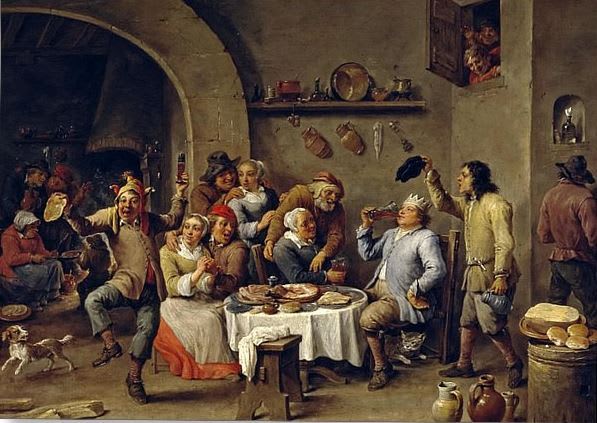
Deck the halls. Hang the mistletoe. Stuff a stocking. Christmas has long been associated with merriment, joy, good tidings, maybe a plum pudding, lots of presents, comfort… and controversy. Yes, it’s true. Join us as we travel back in time and explore some Ghosts of Christmases past. Hold onto your Santa hat.

Medieval Christmas: Misrule or Misery
Christmas in the Middle Ages was a lot different than Christmas today. For starters, it was not the biggest holiday of the year – that honor went to Easter. And while medieval Christmas was, to some extent, a Christian feast day the period surrounding Christmas preserved much older traditions. One such tradition? The reversal of societal norms. From boy bishops to the Lord of Misrule and the Feast of Fools, medieval Christmas was often a topsy-turvy time. But the misrule wasn’t always good natured. Christmas could be a terribly dangerous day if you were not a Christian. While medieval Europe’s Jewish population faced persecution year-round, the Christmas period was sometimes marked by increased hostility against Jewish communities.
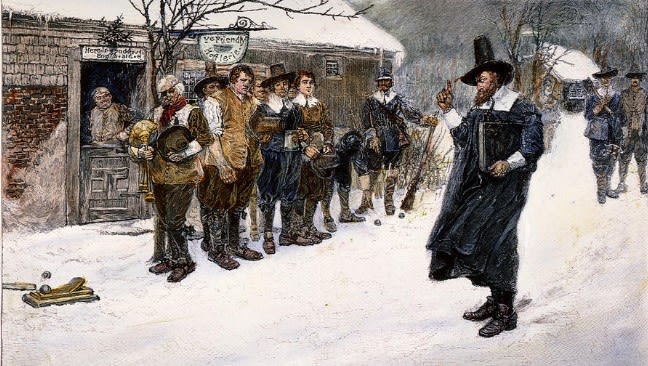
17th Century: The Puritan War on Christmas
Victorious against King Charles I, the Puritan Parliament of 1647 canceled Christmas. The principle: if it’s not in the Bible, it’s not Christian. Merriment? Forbidden. Feasting? Fasting. Shops? Ordered to stay open. Churches? Shut down. Ministers preaching on Christmas? Arrested. To Puritan England, Christmas was Pagan and distinctly “un-Christian.” On Christmas Eve, 1647, the House of Commons ordered local militia committees to protect shopkeepers (who had no legal choice but to open) from ‘Affronts, Abuses, and Prejudices’ by ‘Malignants’ or ‘Others’ who may have opposed the Parliamentary order. What about the colonies? Christmas was outlawed in Massachusetts from 1659-1681. Punishable by a harsh fine, or worse. Oh, and the carolers? They formed an underground…
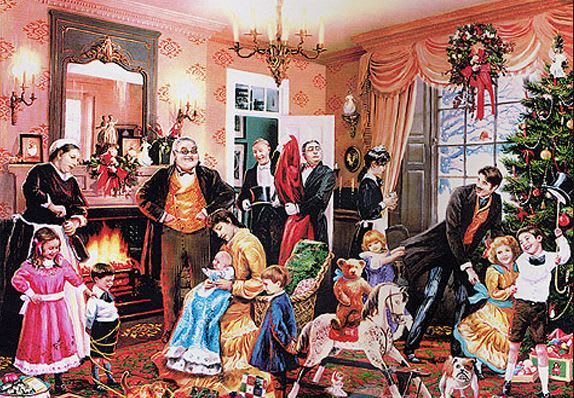
19th Century: The Revolutionary Christmas
The “re-making” of Christmas happened in the early 19th century when upwardly mobile, educated, cultured members of the German-speaking European bourgeois “tamed” the holiday. While it didn’t happen overnight, it took about 100 years to make Christmas “accessible.” The holiday was moved inside, celebrated around a tree; stories of a jolly man in a red suit who commandeered a fleet of reindeer were disseminated widely. Families were encouraged to share a meal together, perhaps even drink a splash of bourbon. The German bourgeoisie created a meaningful, aesthetically appealing, culturally pleasing way to rebel against the excesses of the aristocracy and to elevate themselves above the poor and uneducated.
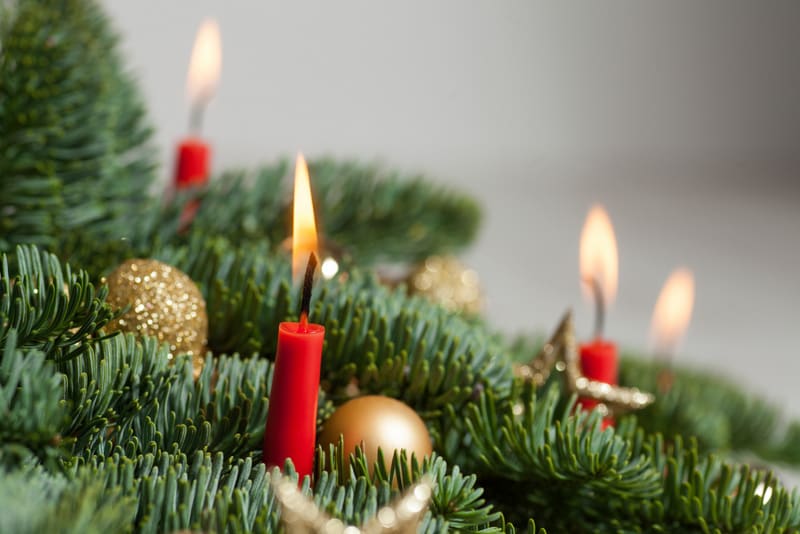
20th Century: The Insurance Industry says “Bah Humbug”
Scrooge—in the form of the New York Board of Underwriters—landed in New York in December 1908. Similar to the Puritans, they disliked Christmas’s excesses. Dissimilar? They disliked the fire hazards. According to Bloomberg.com, the Board of Underwriters made this announcement to every fire-insurance firm in the city: “Your attention is hereby respectfully called to the fact that the introduction about the premises of Christmas green, harvest specimens and other inflammable materials, such as cotton, to represent snow, and the like, and the use of moving picture machines, introduces additional hazard not contemplated by the underwriters in issuing policies of indemnity covering the usual fire hazard.”
The result? No more luxurious department store displays. No more Scotch pine and Douglas fir allowed in churches. Forget the boughs of holly. Important fact: in the early 20th century in the US, people still used actual fire to light up their trees. So that wasn’t allowed anymore either. When electric lights were perfected and mass-marketed in the 1920s, insurance companies let up a little, but not too much. Too many fake Santa beards going up in flames—while still attached to their bearers.
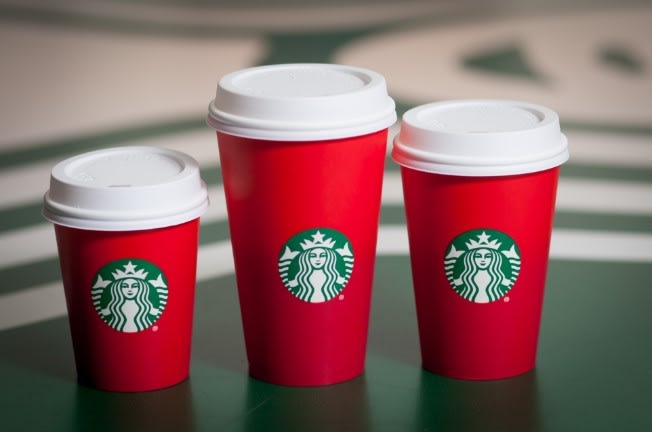
21st Century: The Coffee Cup Controversy
Here in the 21st century, we’ve taken a more mature approach to Christmas. We fight about coffee cups. Josh Feuerstein, online American Christian evangelist, raged last year over Starbucks’ red holiday cups. Because they didn’t say “Merry Christmas.” And Starbucks doesn’t require its employees to say “Merry Christmas” to everyone who walks through the door. Starbucks’s response? In an article in The Atlantic last year, a Starbucks spokesperson reportedly said that baristas should create a welcoming environment to its customers—so while they’re not banning Christmas, they recognize that they serve millions of customers worldwide from all walks of life. Check out their new cups this year.
Here’s the tragedy: this should not grip us. Real controversy should.
Not so holly jolly, is it? Wondering what the Ghost of Christmas Future has to say? We do, too. While you’re wondering, do this: be kind. ‘Tis the season.


